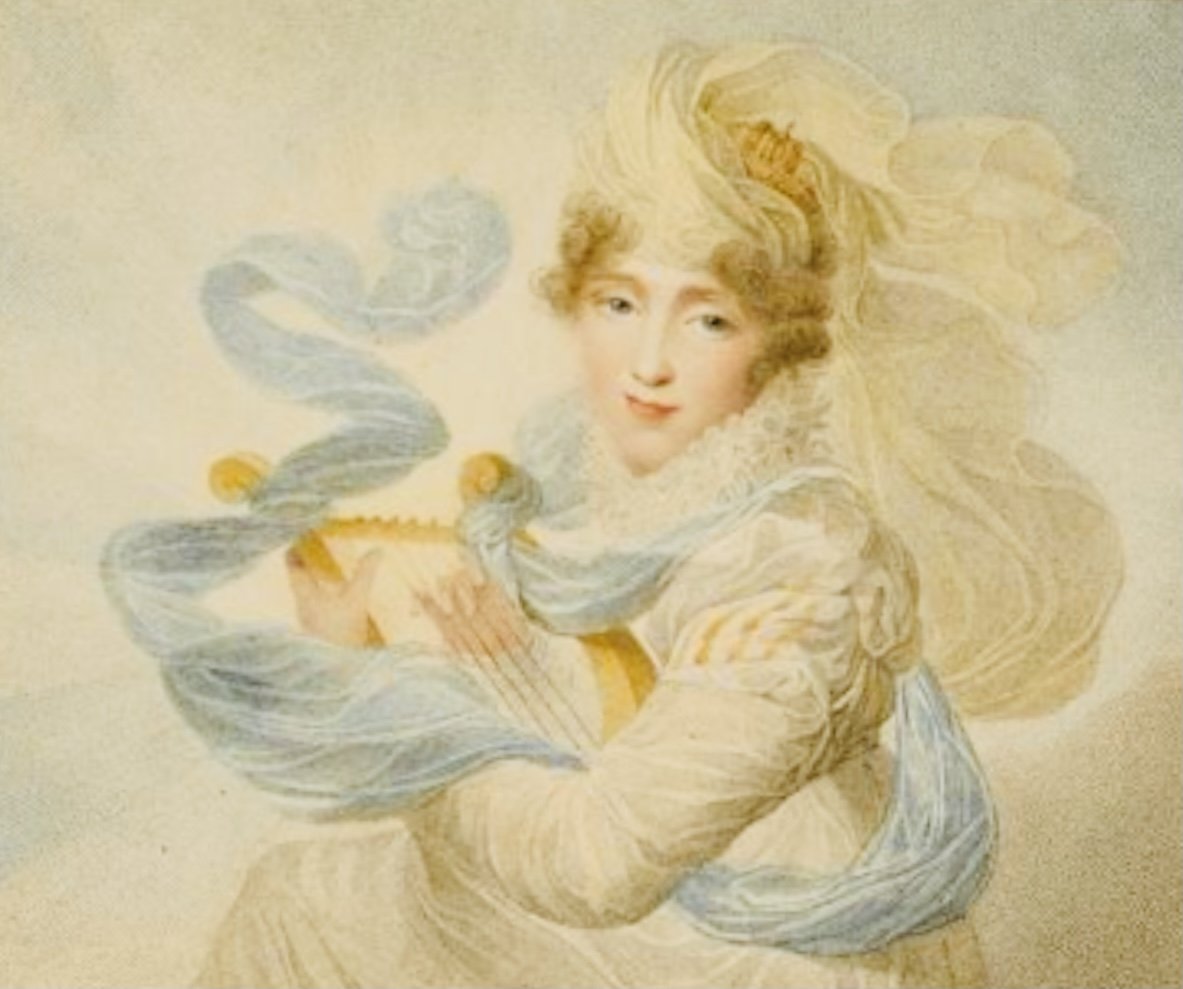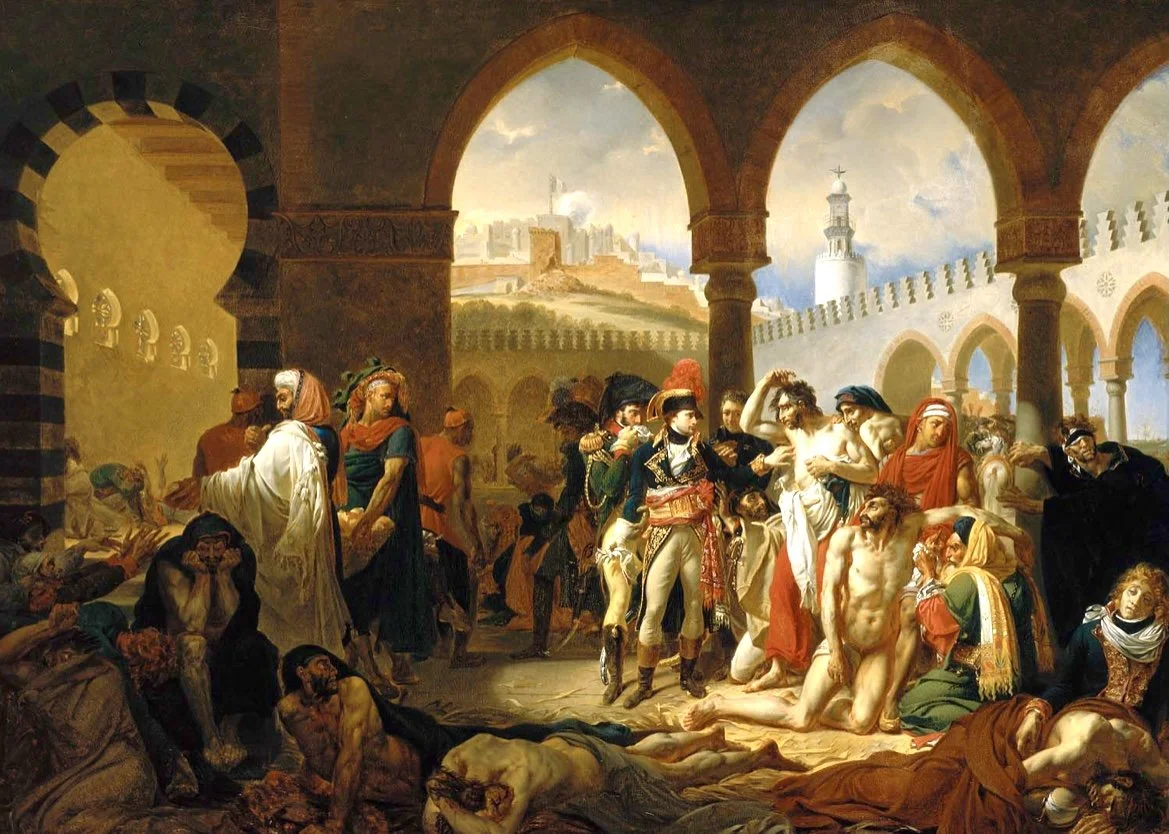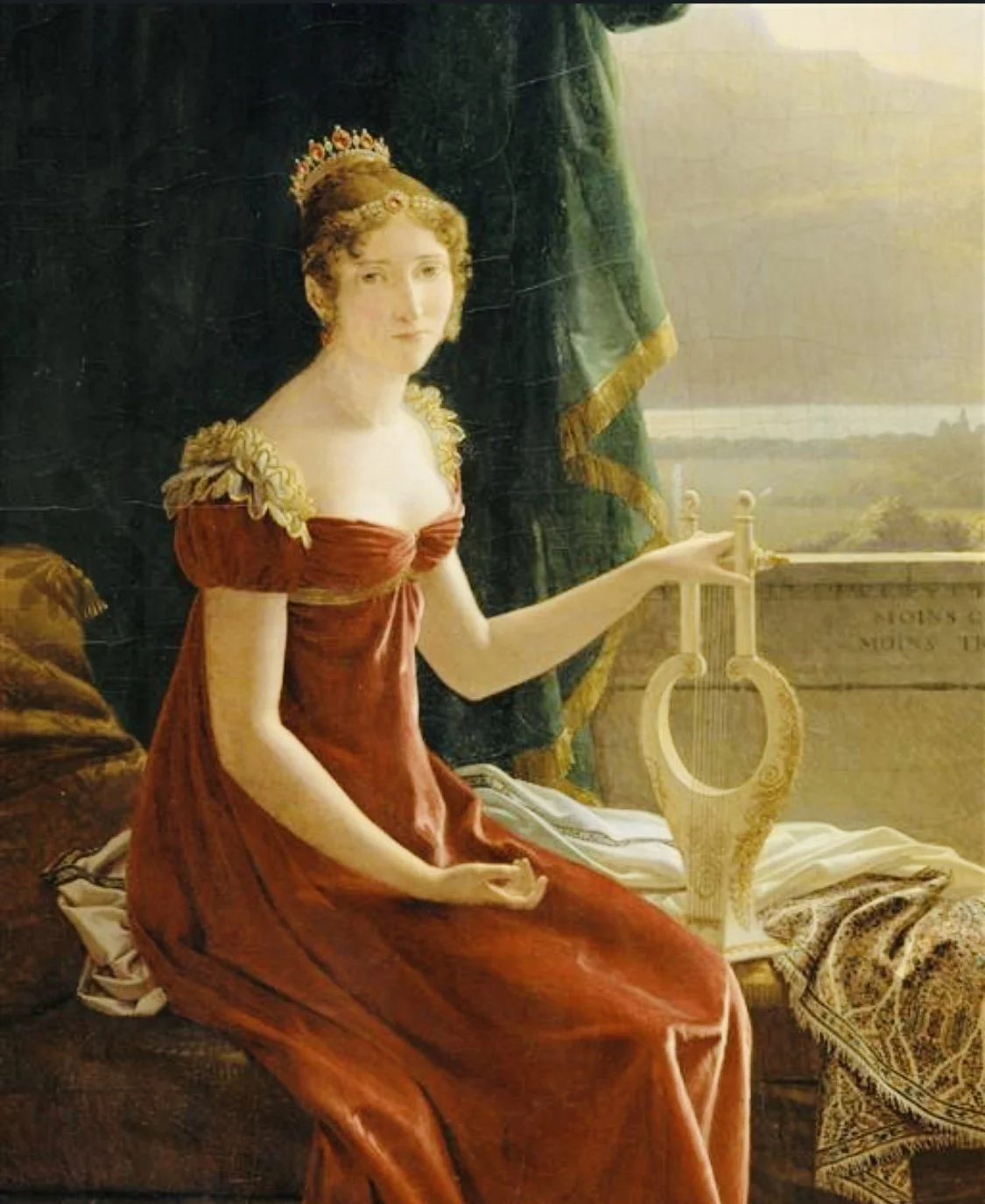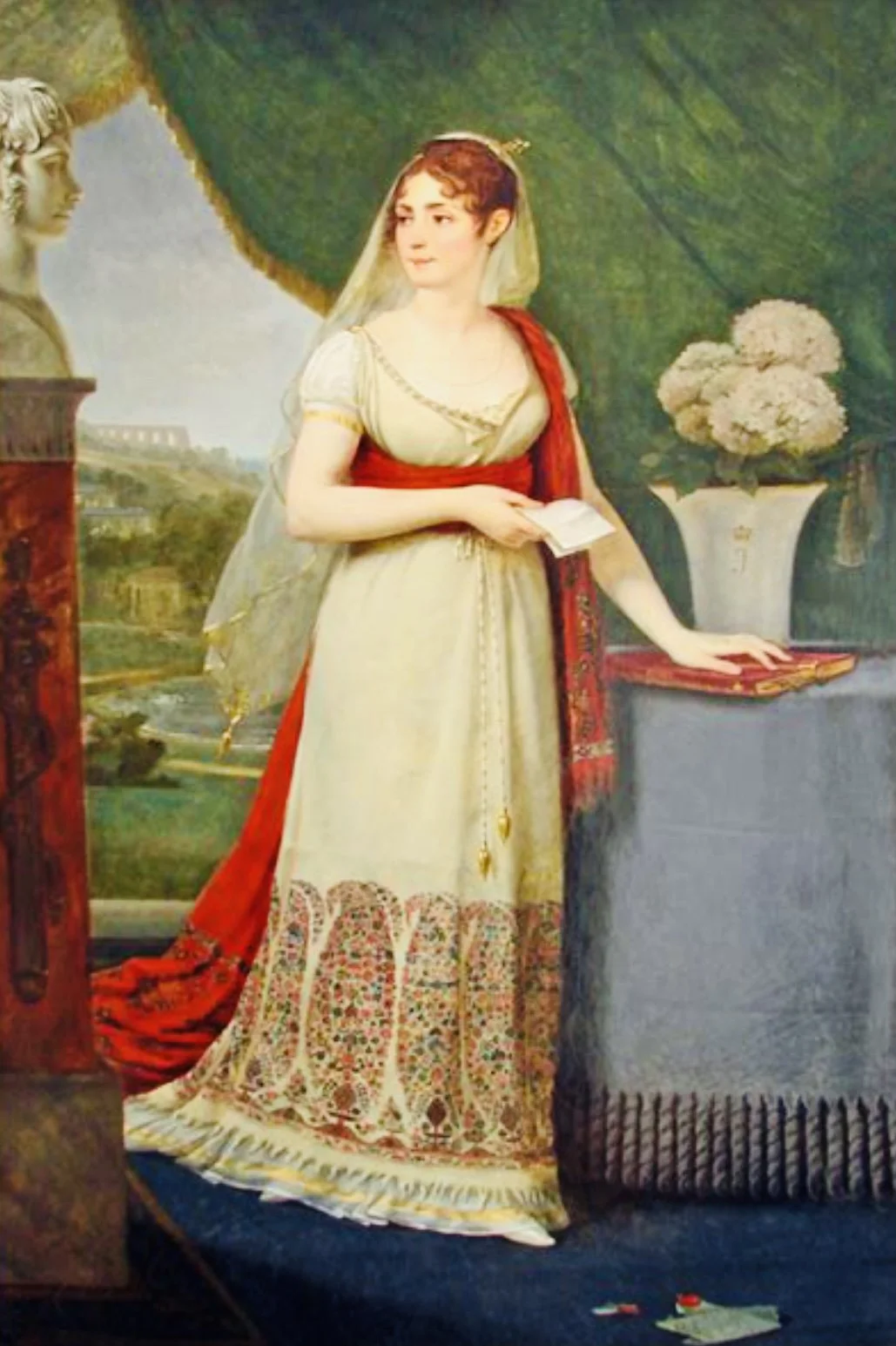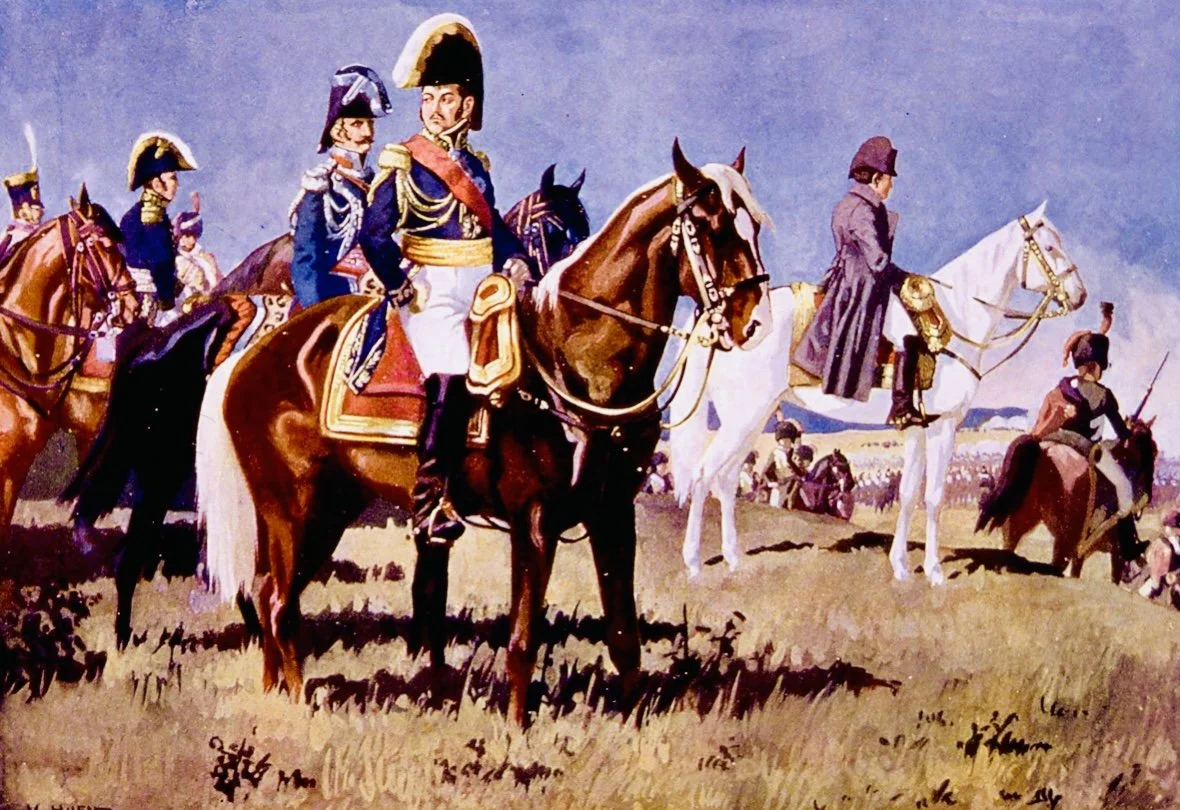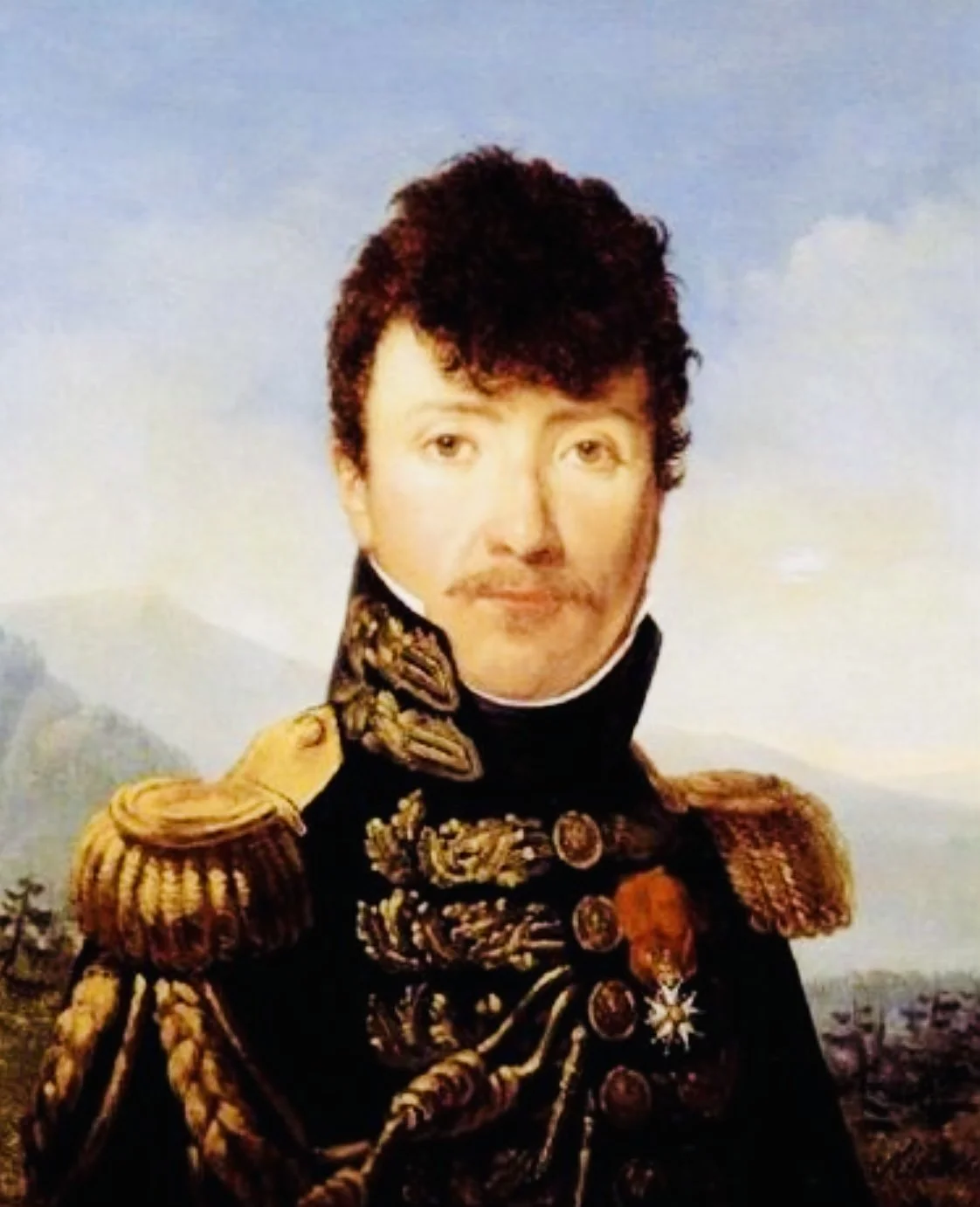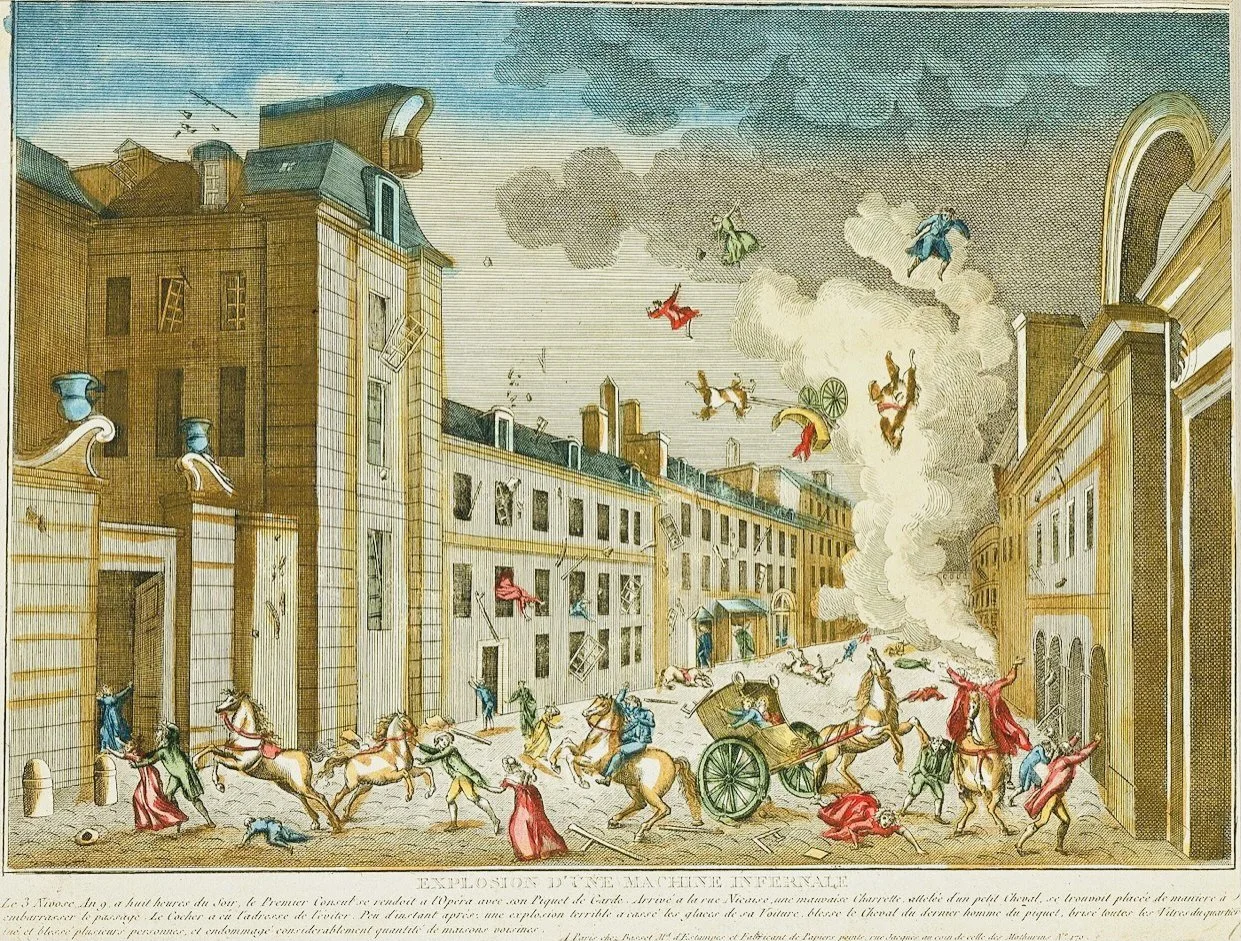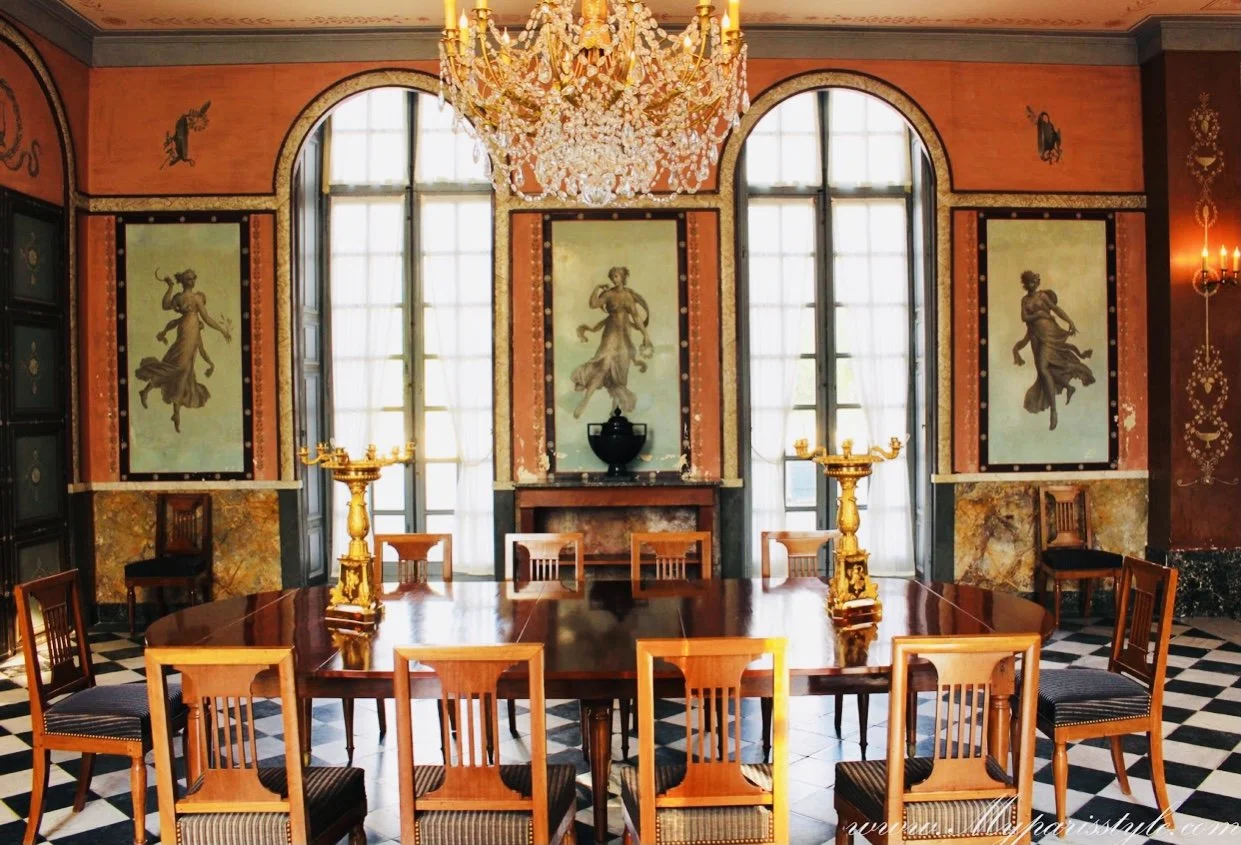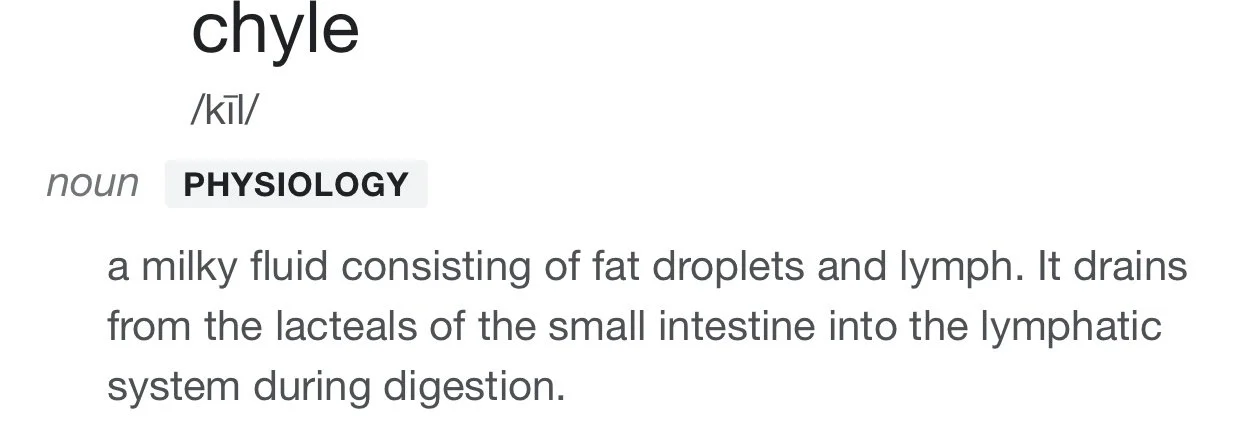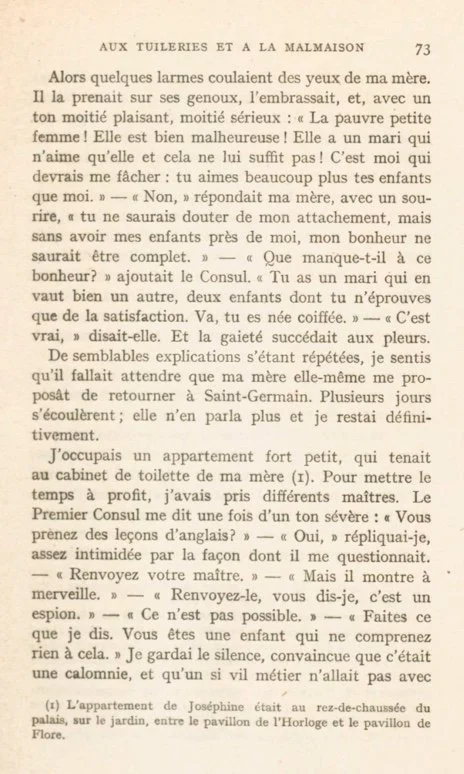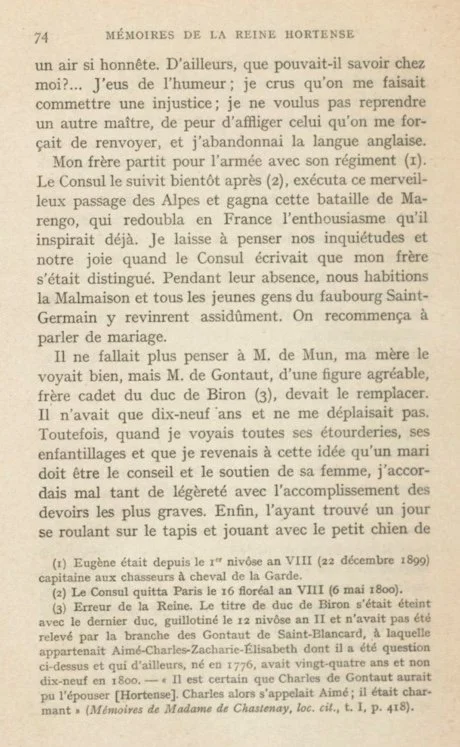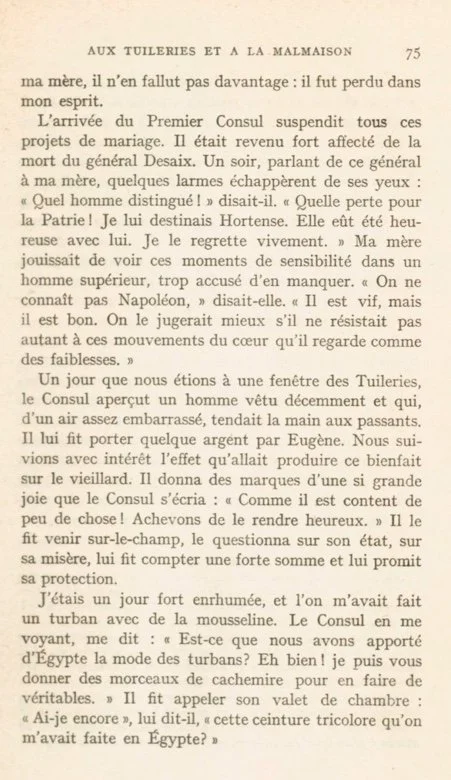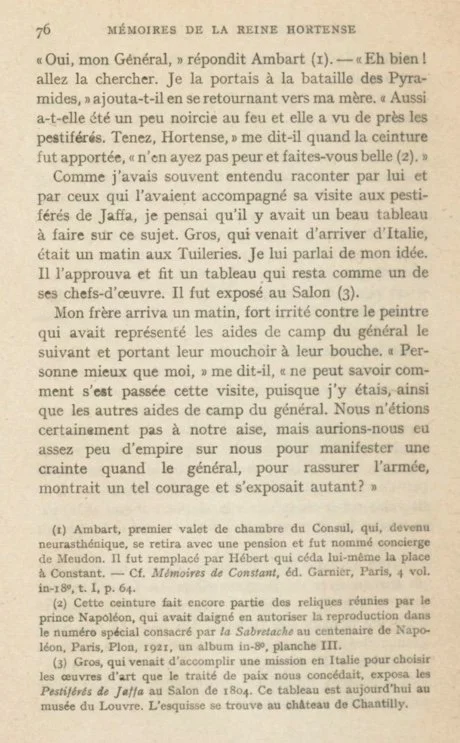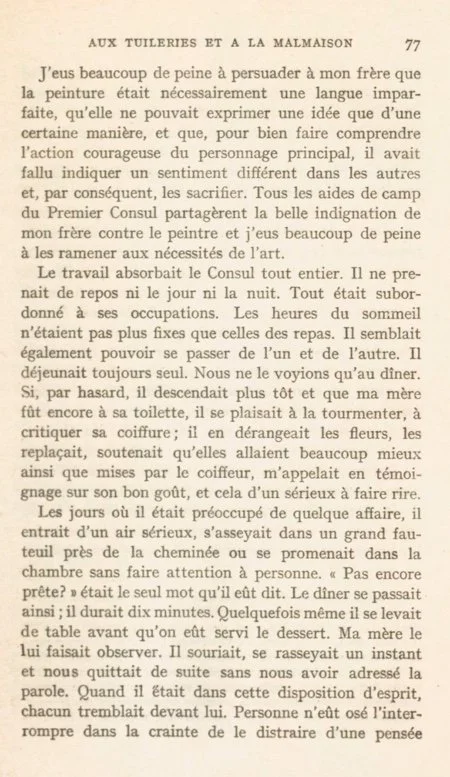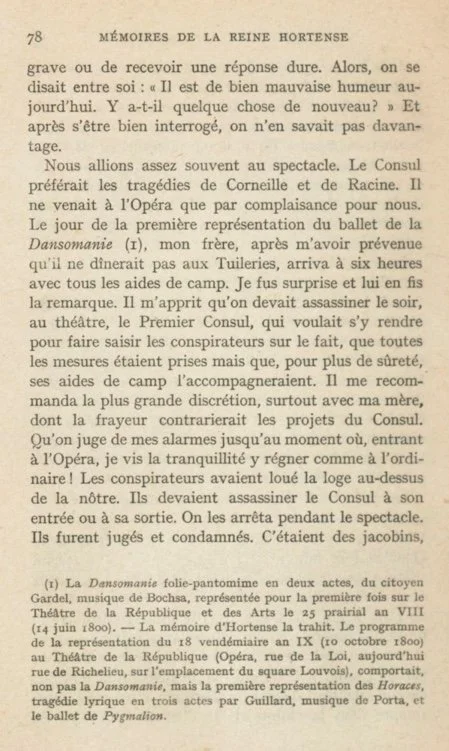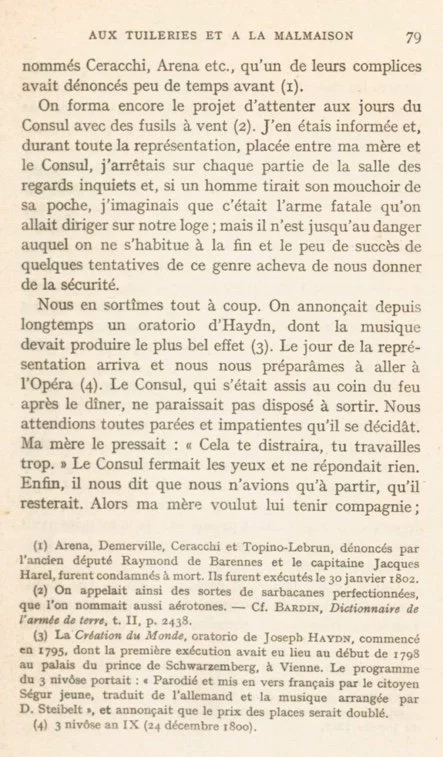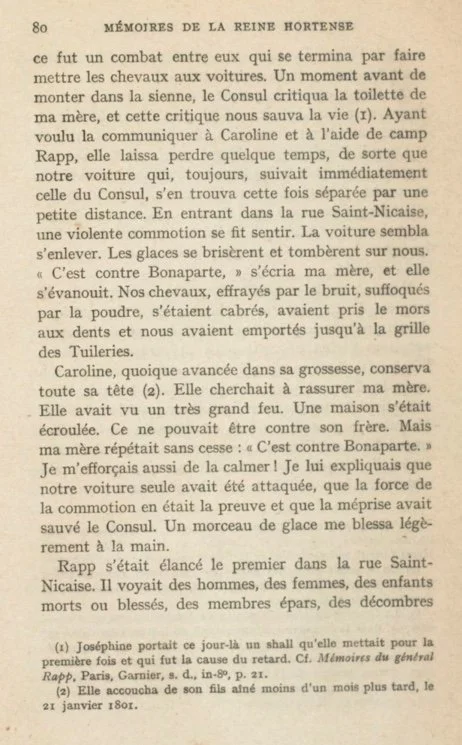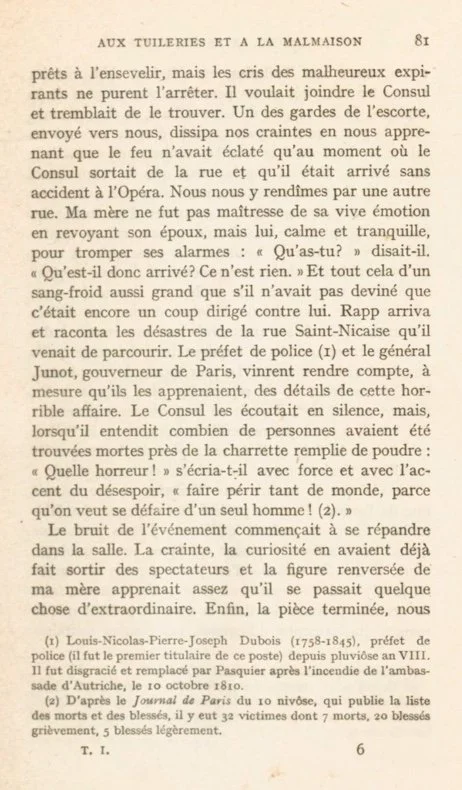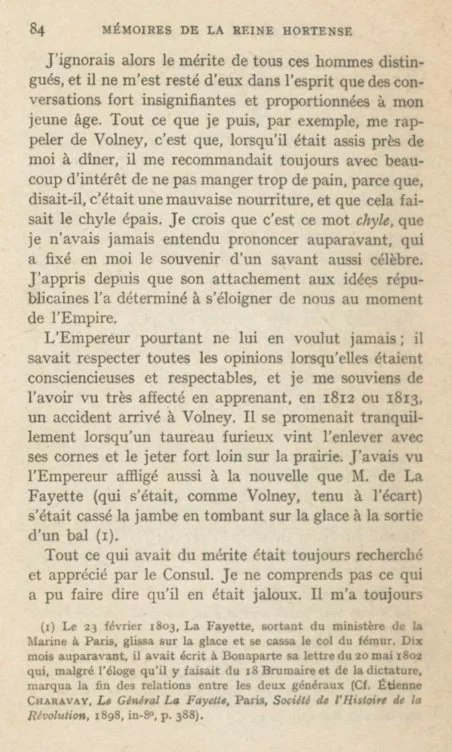Let’s have another look at Hortense’s Memoirs. If you want to read the book it is available for free at the side bar in English and French. Use the widget on the sidebar to translate the text below into pretty much any language.
In this excerpt, Hortense and her mother Josephine are given lots of fashion advice by Napoleon and her whole family copes with repeated acts of terrorism aimed at them. Spies also begin infiltrating their life. Since a spy posing as an English teacher looks so honest, it’s difficult for Hortense to perceive this infiltrator at first.
Several days passed, she said nothing, and I remained finally with her. My apartment, which was very small, was next to my mother's dressing room.
In order not to waste my time I had selected several teachers. The First Consul said to me severely, "Are you studying English?"
“Yes," I answered, somewhat dismayed by the tone in which he spoke. “Dismiss your teacher." "But he seems very good."
“I tell you to dismiss him. He is a spy."
“That can't be true."
“Do as I say. You are nothing but a child and do not understand these things."
I was silent, convinced this was a piece of slander and that so despicable a trade could not be carried on by such an honest looking man.
Moreover, what could he hope to find out from me? The incident annoyed me, for I believed I was committing an injustice. I declined to take another teacher for fear of offending the one I had dismissed, and I gave up studying English.
My brother left for the front with his regiment.
The Consul followed him shortly afterwards, executing that wonderful crossing of the Alps and winning the Battle of Marengo, thus further increasing the passionate admiration which he already aroused in France. My readers can imagine for themselves the anxiety through which we passed and the joy we felt when the Consul wrote, saying my brother had distinguished himself.
While they were away, we lived at La Malmaison and all the young men of the Faubourg Saint Germain called there assiduously.
My marriage began to be spoken of again. There could no longer be any question of Monsieur de Mun, as my mother realized, but Monsieur de Gontaut, an agreeable looking youth, younger brother of the Due de Biron, was ready to take his place as candidate. He was only nineteen and I did not dislike him. Yet when I watched his boyish pranks, his silly antics and remembered that a husband should be his wife's counselor and support I could not help wondering if such light-heartedness was compatible with the serious business of life.
Finally, one day I discovered him rolling on the floor while he played with my mother's little dog.
That settled the question. The return of the First Consul interrupted these various matrimonial projects.
He came back much depressed by the death of General Desaix. One evening as he was speaking to my mother about the General tears stood in his eyes. "What a fine man! What a loss to our country! I intended him for Hortense. With him she would have been happy. I regret him deeply."
My mother noted with pleasure these moments when this brilliant man, too frequently accused of lacking emotion, gave way to his feelings.
“People do not know Napoleon," she would say. "He is quick tempered, but kind. If he did not seek to suppress these outbursts of feeling, which he considers signs of weakness, people would understand him better."
One day as we were standing at a window of the Tuileries the Consul noticed a man, decently dressed, who in a deprecating manner was asking the passers-by for alms. He sent Eugene out to him with some money. We watched with interest to see the effect this gift would have on the old man. His joy was so great that the Consul exclaimed, "How little it takes to satisfy him. Let us make him entirely happy." Immediately the old man was brought in, the First Consul questioned him regarding his needs and how he had fallen into poverty, paid him a considerable sum of money and promised him his protection.
About this time I had a bad cold. To keep warm, I had made myself a turban out of muslin. The Consul said to me "Did we bring the fashion of wearing turbans back from Egypt with us? If so, I can give you some strips of cashmere so that you can make yourself a real one."
He called his servant and asked, "Have I still the red, white and blue waistband that was made for me in Egypt?"
“Yes, General," answered Ambart. "Then go and get it. I wore it at the Battle of the Pyramids," he went on turning to my mother, "so it has been somewhat blackened by the smoke, and it had a close view of the plague. Take it, Hortense," he added, when it had been brought to him.
“Don't be frightened of it, and may it prove becoming." As I had often heard my stepfather and his companions speak of his visit to the plague victims at Jaffa it occurred to me that the incident might make an effective painting.
Gros, who had just come back from Italy, happened to be at the Tuileries one morning. I mentioned my idea to him. He approved of it and made a picture that has remained of his finest works. It was shown at the Salon.
One morning my brother came in very cross with the painter for having drawn the General's aides-de-camp holding their handkerchiefs in front of their mouths. "I know better than anyone else what took place at Jaffa," he said, "because I was there with the other aides-de-camp. We certainly did not feel comfortable. But would we have dared show our nervousness on an occasion when the General, in order to reassure the troops, displayed such courage and exposed himself as he did?"
I had considerable difficulty in proving to my brother that since painting was only an approximation of reality, a picture could only express an idea from a certain angle. In this case in order to indicate the courage of the principal figure the painter had been obliged to suggest a different feeling on the part of the others and sacrifice them in this respect. All the other aides-de-camp shared my brother's just indignation, and I had trouble pacifying them, and making them accept the idea of artistic convention.
Hortense is admitting here that she worked as a propagandist for Napoleon.
The First Consul was entirely absorbed by his work. He rested neither day nor night, and everything else was subordinated to it.
Bedtime and mealtime were equally irregular, and he seemed able to do without sleep or food.
He always lunched alone. We saw him only at dinner. If he happened to come downstairs earlier and my mother was still dressing, he enjoyed teasing her or criticizing the way she did her hair.
He would take off the flowers she was wearing, put them back differently, insist that this new way was much more becoming than the way the hairdresser had arranged them, and call on me to testify what good taste he had. All this with a most comically serious manner.
Days when he had something on his mind he would come in looking serious, sit down in a big armchair in front of the fireplace or walk about the room without paying attention to anyone. "Not ready yet?" would be his only remark. Dinner took place in silence. It lasted ten minutes. Sometimes he even left the table before the dessert had been served. My mother would point this out to him. He would smile, sit down a moment and then leave us immediately without having said a word.
When he was in a humor like this everyone was afraid of him. No one ventured to interrupt his thoughts for fear of disturbing him and receiving a harsh rebuff. We would say to each other, "He is in a bad temper today. Has anything new happened?"
After having tried to find out what the trouble might be we would not know after all. We went to the theater fairly often. The plays the Consul liked best were tragedies by Corneille and Racine. He only went to the Opera because we enjoyed it.
The day of the first performance of "Dansomanie" my brother, who had told us he would not be dining at the Tuileries, appeared about six o'clock accompanied by all the other aides-de-camp.
I was surprised and told him so. He informed me that there was a plot to assassinate the First Consul at the play that night and that the latter intended to go in order to seize the conspirators red-handed. All measures had been taken to insure my step-father's safety, but as a further safeguard his aides-de-camp were going with him.
Eugene begged me not to say a word to anyone, especially not to our mother, whose alarm would interfere with the Consul's plans. Imagine my terror up to the moment when, entering the Opera, I saw everything was as quiet as usual. The conspirators had hired the box just over ours. They planned to assassinate the First Consul either when he came in or as he was going out, but they were arrested while the performance was going on.
They were tried and convicted. They were Jacobins, called Ceracchi, Arena, etc., and one of their accomplices had betrayed them shortly before the attempt was to be made. Another plot was made to kill the Consul at the theater by shooting him with a sort of perfected pea shooter.
I had heard of the plot and during the entire performance, as I sat between my mother and the Consul, I kept casting nervous glances all around the audience. Every time a man took out his handkerchief I wondered if the fatal missile was not about to be aimed at our box.
Yet one speedily becomes accustomed to every danger. The failure of several attempts of this kind gave us a feeling of perfect security. But this did not last. For some time, people had been talking about an oratorio by Haydn, the music of which was supposed to be remarkably fine. The day of the performance arrived," and we were preparing to go to the opera house where it was to be given.
The Consul, who had sat down after dinner by the fire, did not seem inclined to go out. We were all dressed and waited impatiently for him to make up his mind. My mother urged him to come. "It will amuse you; you are working too hard."
The Consul shut his eyes and made no reply. Finally, he said we could go, but he was staying in the house. My mother wanted to keep him company, and an argument ensued which ended by orders being given to have the carriages brought to the door.
A moment before stepping into his carriage the Consul found fault with my mother's dress," and we owed our life to this remark.
She wished to repeat it to Caroline and the aide-de-camp and thus lost a few minutes.
Consequently, our carriage instead of being as usual immediately behind that of the Consul was some little distance away. As we entered the rue Saint Nicaise we felt a violent shock.
The carriage seemed to be blown away. The glass in the window broke and fell on us. "It's an attempt to kill Bonaparte," exclaimed my mother, and fainted. Our horses, terrified at the noise, suffocated by the powder, reared and taking the bits in their teeth dashed back with us to the Tuileries.
Caroline, although she was about to have a child," remained cool and attempted to reassure my mother. She had seen a mass of flame. A house had fallen down. It could not be a plot against her brother. But my mother kept repeating over and over, "It's an attempt to kill Bonaparte."
I tried to calm her to the best of my ability. I explained to her that it was our carriage that had been attacked, that the violence of the shock we had experienced proved this and that the mistake had saved the Consul. A piece of glass had slightly wounded my hand.
Rapp had dashed into the rue Saint Nicaise. There he caught sight of men, women and children wounded or dying or with shattered limbs, and ruins that threatened to crash down upon him. But the cries of the victims did not check his course. He sought to rejoin the Consul and yet feared to find him.
Rapp was very protective of Napoleon.
One of the soldiers of the escort who had been sent to meet us relieved our apprehension with the news that the explosion had only occurred as the Consul was leaving the rue Saint Nicaise and that he had arrived safely at the Opera.
We proceeded thither by another route. My mother was unable to dissemble her emotion when she caught sight of her husband, but he, calm and untroubled, sought to quiet her fears. "What is the matter?" he asked.
“What has happened?"
“Nothing very serious." His whole manner was as placid as though he did not know there had been another attempt made on his life. Rapp arrived and described the horrors of the rue Saint Nicaise, through which he had just passed.
The Prefect of Police and General Junot, Military Governor of Paris, presented their reports as they secured further details of this terrible episode. The Consul listened in silence, but when he heard the number of persons whose bodies had been found near the cart loaded with powder (which had served as an infernal machine) he exclaimed in tones of anguish, "How ghastly to cause the death of so many people's in seeking to do away with a single man !"
The news of what had taken place began to spread through the audience. Alarm and curiosity had already caused a number of the spectators to leave the theater, and my mother's agitated appearance indicated clearly that something extraordinary had happened.
Finally, the performance was over, and we returned to the Tuileries. There we found assembled all the government authorities and leading citizens of Paris. I listened to their discussion. Each suggested which hostile political party he believed capable of committing such an outrage. The Consul and the ministers of state accused the Jacobins.
Fouché was alone in his belief that the blow had been struck by the royalists but failed to convince his hearers. Indeed, how could one suspect that men who had so loudly protested against the use of violence could be guilty of such an act? Were they trying to resemble those upon whom they had showered scorn and reproaches?
A little later the Consul's coachman (who was drunk that night) came in while we were at dinner and gave the following details: One of his friends had rented a stable to some unknown man. They kept a cart there which they came often to look at. The day the explosion took place they had taken away the cart and never reappeared.
While drinking at a public house he had secured this information, which when added to what the Minister of Police secured furnished the necessary clues. There was no possibility of doubting that it was the royalists who had hatched and executed this plot.
I did not enjoy in the least the life I led at the Tuileries. I should have preferred to live in the country. Malmaison was a charming spot and I was delighted when we went there for a few days, although even then I could not enjoy it in the same way I did when I was alone there.
On such occasions I was able to take long walks through the park, but at other times, when the house was filled with men, these strolls would not have been proper. I was well aware of the fact, and here again the good advice I had received from Madame Campan, which always meant so much to me, taught me what to avoid.
Malmaison.
The Consul's habits were much the same at Malmaison as in Paris. He invariably worked all the morning alone with his ministers. Scientists were invited to dinner; they stayed afterwards, spending the rest of the evening, and the Consul enjoyed their conversation. Those I saw the most frequently were Monge, Berthollet, Fourcroy, Volney, Laplace, Lagrange and Prony.
Interior of Malmaison.
Those who were married came with their wives. Lemercier also came to Malmaison several times and read us his tragedies. Of them all the Emperor seemed to prefer Monge best as a man, and he never broke off relations with him entirely. He even suggested later on that I have him as tutor for my children. Volney came to see us only during the Consulate, but then he came often.
He was highly esteemed by all the persons who had taken part in the expedition to Egypt. They considered that his account of his travels in that country was the only accurate one and that the descriptions given by another author called Savary were not true. Volney was a rigid believer in republican ideals. He always came and sat next to me at the table, asked me questions about Saint Germain, enjoyed hearing me give my views upon life and seemed to approve of them.
In those days I did not realize how eminent these distinguished men were. My only recollections of them are very trivial conversations and remarks such as youth could readily understand. For instance, the thing I remember about Volney is that whenever he sat beside me he would insist on my not eating too much bread. He said it was not nourishing and made the chyle too thick. I believe it was the word "chyle," which I had never heard pronounced before, that made me remember the distinguished scientist.
chyle
/kīl/
noun
PHYSIOLOGY
a milky fluid consisting of fat droplets and lymph. It drains from the lacteals of the small intestine into the lymphatic system during digestion.
The original French is available below:
Contempt for the laws, and the disturbance of public order, are the results of weakness and wavering in princes.
I hope we can learn from Napoleon’s mistakes.

